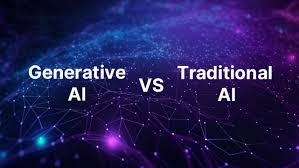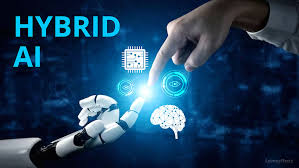Generative AI (Gen AI) transforms healthcare by streamlining operations, enhancing patient care, and driving innovation. From automating administrative tasks to improving diagnostic precision, its impact is far-reaching.

In this article, we’ll explore 22 innovative applications of Gen AI in healthcare.
What is Generative AI in Healthcare?
Generative AI refers to AI models that create text, images, and audio content. In healthcare, this technology is used to optimize workflows, improve patient outcomes, and deliver personalized care.
A McKinsey study revealed that 30% of organizations already use Gen AI, with 40% planning to increase their investments. Despite this, healthcare organizations are still tapping into its vast potential.
Below are the top applications of Gen AI in healthcare.
1. Streamlining Administrative Processes
Interactive Helpdesks
Gen AI-powered virtual assistants manage routine inquiries like appointment scheduling, insurance information, and medication guidance. These AI-driven tools operate 24/7, improving patient satisfaction and reducing the administrative workload.
Intelligent Knowledge Management
Hospitals and clinics produce enormous volumes of information daily. Gen AI organizes this data into searchable knowledge bases, enabling healthcare professionals to access critical information quickly and efficiently.
Data Extraction and Insights
Extracting data from medical records, monitoring devices, and lab results is often time-consuming. Gen AI processes structured and unstructured data to deliver actionable insights, improving clinical decision-making and reducing errors.
Automated Medical Documentation
By capturing doctor-patient interactions, Gen AI generates detailed medical notes, prescriptions, and follow-up schedules. This automation saves time, reduces administrative burdens, and ensures accuracy in record-keeping.
Personalized Patient Communications
Gen AI crafts tailored emails, reminders, and notifications based on a patient’s condition and treatment plan, enhancing engagement and adherence.
Generating Synthetic Data
For software development and testing, Gen AI generates synthetic healthcare data that mimics real-world scenarios while protecting patient privacy.
Marketing Content Creation
To engage patients and improve outreach, healthcare organizations use Gen AI to create personalized marketing campaigns, including emails and social media posts.
2. Revolutionizing Patient Care
Virtual Health Assistants
AI-powered chatbots provide round-the-clock support to patients by answering treatment-related questions, sending reminders, and assisting with scheduling. These tools bridge gaps in patient care while reducing dependency on medical staff.
Medical Report Generation
Gen AI synthesizes data from handwritten notes, images, and audio recordings to create comprehensive medical reports. This aids doctors in managing patient information seamlessly.
Personalized Treatment Plans
Using patient history and genetic data, Gen AI creates tailored treatment recommendations, enabling precision medicine and improving patient outcomes.
Enhanced Medical Imaging
Gen AI enhances the clarity of MRI and CT scans, helping radiologists make more accurate diagnoses and improving the overall quality of care.
Virtual Primary Care
AI-driven symptom checkers guide patients in assessing the severity of their symptoms, offering advice on whether to seek home care or visit a doctor.
3. Mental Health and Cognitive Care Applications
AI-Driven Mental Health Support
Gen AI powers mental health apps, providing tools like meditation guides, emotional tracking, and virtual counseling, making mental health support more accessible.
Early Detection of Cognitive Disorders
AI analyzes speech patterns and facial expressions to detect early signs of cognitive impairments, enabling timely interventions and better monitoring.
Cognitive Training Tools
Interactive AI-powered games stimulate brain activity in patients with cognitive disorders, aiding their recovery and improving mental acuity.
4. Improving Patient Education
Creating Educational Materials
Gen AI generates engaging, age-appropriate materials to educate patients about their conditions. For example, interactive videos or storybooks help children understand chronic illnesses like diabetes.
Simplified Medical Guides
AI converts complex medical terminology into easy-to-understand resources, empowering patients to make informed decisions about their health.
5. Enhancing Operational Efficiency
AI-Powered Scheduling Assistants
AI chatbots streamline appointment booking by understanding patient symptoms, matching them with the right healthcare providers, and sending reminders.
Predictive Analytics for Resource Allocation
Gen AI predicts patient inflows and resource needs, enabling hospitals to optimize staffing and reduce costs.
Prototyping Healthcare Solutions
Conclusion
Generative AI is revolutionizing healthcare by enhancing operational efficiency, improving patient care, and driving innovation. From streamlining administrative tasks to personalizing treatments, Gen AI offers a glimpse into the future of patient-centric healthcare.
Healthcare providers must embrace Gen AI responsibly, leveraging its potential to transform how care is delivered. By doing so, they can create a more efficient, accessible, and personalized healthcare system.






